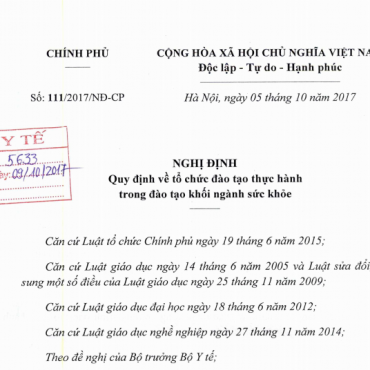Contact Admission
International Collaboration
BCG vaccine (thuốc chủng ngừa bệnh lao) & SARS-CoV 2 (covid-19) infection
Placebo-controlled RCT: In high-risk patients, Bacillus Calmette–Guerin vaccine reduced probable symptomatic COVID-19 but not microbiologically proven disease at 9 mo.
Sinha S, Ajayababu A, Thukral H, et al. Efficacy of Bacillus Calmette-Guerin (BCG) Vaccination in Reducing the Incidence and Severity of COVID-19 in High-Risk Population (BRIC): a Phase III, Multi-centre, Quadruple-Blind Randomised Control Trial.Infect Dis Ther. 2022 Oct 15. pii: 10.1007/s40121-022-00703-y. doi: 10.1007/s40121-022-00703-y.INTRODUCTION: Universal coverage of vaccines alone cannot be relied upon to protect at-risk populations in lower- and middle-income countries against the impact of the coronavirus disease 2019 (COVID-19) pandemic and newer variants. Live vaccines, including Bacillus Calmette-Guérin (BCG), are being studied for their effectiveness in reducing the incidence and severity of COVID-19 infection.METHODS: In this multi-centre quadruple-blind, parallel assignment randomised control trial, 495 high-risk group adults (aged 18-60 years) were randomised into BCG and placebo arms and followed up for 9 months from the date of vaccination. The primary outcome was the difference in the incidence of COVID-19 infection at the end of 9 months. Secondary outcomes included the difference in the incidence of severe COVID-19 infections, hospitalisation rates, intensive care unit stay, oxygen requirement and mortality at the end of 9 months. The primary analysis was done on an intention-to-treat basis, while safety analysis was done per protocol.
RESULTS: There was no significant difference in the incidence rates of cartridge-based nucleic acid amplification test (CB-NAAT) positive COVID-19 infection [odds ratio (OR) 1.08, 95% confidence interval (CI) 0.54-2.14] in the two groups, but the BCG arm showed a statistically significant decrease in clinically diagnosed (symptomatic) probable COVID-19 infections (OR 0.38, 95% CI 0.20-0.72). Compared with the BCG arm, significantly more patients developed severe COVID-19 pneumonia (CB-NAAT positive) and required hospitalisation and oxygen in the placebo arm (six versus none; p = 0.03). One patient belonging to the placebo arm required intensive care unit (ICU) stay and died. BCG had a protective efficacy of 62% (95% CI 28-80%) for likely symptomatic COVID-19 infection.
CONCLUSIONS: BCG is protective in reducing the incidence of acute respiratory illness (probable symptomatic COVID-19 infection) and severity of the disease, including hospitalisation, in patients belonging to the high-risk group of COVID-19 infection, and the antibody response persists for quite a long time. A multi-centre study with a larger sample size will help to confirm the findings in this study.
CLINICAL TRIALS REGISTRY: Clinical Trials Registry India (CTRI/2020/07/026668).
Source: https://pubmed.ncbi.nlm.nih.gov/Fulltext: https://pubmed.ncbi.nlm.nih.gov/36242739/
Other library
- One in 10 People Who Had Omicron Got Long COVID: Study ( 20:25 - 01/06/2023 )
- Physical Medicine Academy Issues Guidance on Long COVID Neurologic Symptoms ( 09:58 - 19/05/2023 )
- Breakthrough' Study: Diabetes Drug Helps Prevent Long COVID ( 08:55 - 15/03/2023 )
- Đại dịch COVID-19 đã kết thúc? ( 09:11 - 22/09/2022 )
- Dị hình giới tính ở COVID-19: Ý nghĩa tiềm năng về lâm sàng và sức khỏe cộng đồng ( 09:22 - 19/03/2022 )
- COVID-19 Update ( 21:00 - 06/03/2022 )
- Một người có thể tái mắc Covid-19 bao nhiêu lần ?? / kèm 6 tài liệu mới ... do "waning immunity", xảy ra ≥6 tháng sau chủng ngừa hay mắc nhiễm .. ( 20:25 - 06/03/2022 )
- T-cells from common colds can provide protection against COVID-19 - study ( 08:25 - 11/01/2022 )
- Coronavirus Can Spread to Heart, Brain Days After Infection ( 07:56 - 30/12/2021 )
- Cập nhật tình hình đại dịch Covid-19 toàn cầu, chủ nhật 19-12-2021 ( 08:07 - 20/12/2021 )
















